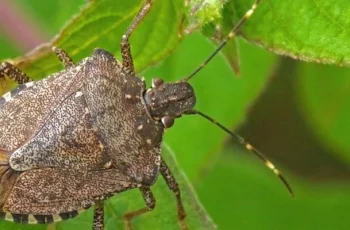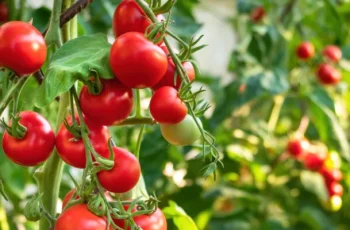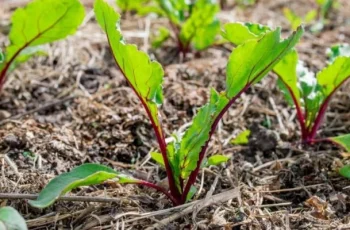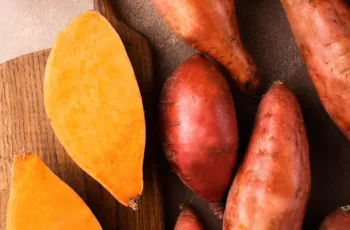Below is a condensed version of the article, trimmed to approximately 1500 words while preserving the core ideas, structure, and tone. I’ve streamlined details, reduced examples, and tightened the prose to meet the word count without losing essential content.

Soil Quality: The Key to Thriving Gardens
Soil quality underpins successful gardening. Without vital nutrients, plants struggle to grow, bear fruit, or resist pests and diseases. Commercial fertilizers work but often carry high costs and synthetic additives. Fortunately, gardeners can turn to cheap, fast, and nearly free alternatives that boost soil fertility sustainably. From kitchen scraps to yard waste, these natural options enrich soil without breaking the bank. Let’s explore how to transform everyday materials into powerful fertilizers.
Transforming Kitchen Scraps into Nutrient Boosters
Food waste doesn’t belong in the trash—it’s a goldmine for gardeners. Repurposing kitchen scraps cuts costs and delivers essential nutrients to plants.
Banana Peels: Potassium and Phosphorus
Banana peels are packed with potassium and phosphorus, aiding root strength and flower production. Chop and bury them near plants for a slow nutrient release, or soak them in water for a quick liquid fertilizer.
Eggshells: Calcium and Pest Defense
Rich in calcium, crushed eggshells prevent blossom-end rot in tomatoes and deter slugs. Dry, crush, and mix them into soil, or steep in vinegar for a calcium-rich spray.
Coffee Grounds: Nitrogen Boost
Coffee grounds supply nitrogen, enhancing soil structure and water retention. Sprinkle them around acid-loving plants like roses or mix into compost. Use sparingly to avoid over-acidifying soil.
Vegetable Scraps: Fertilizer Tea
Blend peelings and leftovers with water, let sit for a day, then strain. The resulting tea nourishes plants when poured at their base, while the pulp can enrich compost.
Manure: A Classic Natural Fertilizer
Manure is a time-tested soil enhancer, often free from farms or livestock. Properly handled, it delivers nutrients and improves soil texture.
Cow and Horse Manure: Balanced Blend
With nitrogen, phosphorus, and potassium, cow and horse manure suit most plants. Age it for 6–12 months to avoid root burn, then spread over beds.
Chicken Manure: Nitrogen Power
High in nitrogen, chicken manure boosts leafy greens but needs composting to temper its acidity. Apply sparingly once matured.
Rabbit Manure: Gentle and Direct
Rabbit droppings decompose quickly and can be used fresh without burning roots. Scatter them around plants for a mild nutrient lift.
Using Grass Clippings and Leaves
Yard waste like grass clippings and leaves is free and nutrient-rich, enhancing soil fertility and moisture retention.
Grass Clippings: Quick Nitrogen
Fresh clippings release nitrogen fast. Use as mulch or compost additive, avoiding herbicide-treated grass.
Fallen Leaves: Soil Conditioner
Shredded leaves retain moisture and foster microbes. Spread them over beds, reserving pine needles for acid-loving plants.
Weeds (Before Seeding): Nutrient Return
Compost young weeds to recycle nutrients, but skip seeded ones to prevent spreading.
Compost: Sustainable Soil Gold
Composting turns waste into nutrient-rich fertilizer, reducing trash and costs.
Ingredient Balance
Mix green (nitrogen-rich) scraps like veggie peels with brown (carbon-rich) items like leaves in a 3:1 ratio.
Turning and Moisture
Turn the pile regularly and keep it damp like a sponge for faster breakdown—2–3 months with effort, longer if passive.
Avoid Trouble
Skip meat, dairy, and diseased plants to prevent odors and pests.
Worm Castings: Soil Health Superstars
Vermicomposting with worms produces castings full of nutrients and microbes, elevating soil quality.
Red Wigglers: Efficient Workers
Red wigglers process scraps quickly. Feed them fruit and veggie bits in a bin with newspaper bedding.
Proper Conditions
Keep the bin moist and ventilated, ideally 55–77°F, for happy worms.
Application
Mix castings into soil, use as top dressing, or brew into tea for a liquid boost.
Ocean-Based Fertilizers
Coastal gardeners can tap the sea for potent natural fertilizers.
Fish Emulsion: Nitrogen-Rich
Fish emulsion promotes leafy growth. Dilute it (1 tbsp per gallon) and apply every few weeks.
Seaweed Extracts: Micronutrient Mix
Seaweed offers potassium and hormones for root health. Soak fresh seaweed or use powdered extracts monthly.
Wood Ash and Bone Meal: Mineral Boosts
These natural sources deliver key minerals to soil.
Wood Ash: Potassium Source
Ash from untreated wood adds potassium and adjusts pH. Dust lightly over beds, avoiding alkaline soils.
Bone Meal: Phosphorus Lift
Bone meal slowly releases phosphorus for roots and flowers. Mix into planting holes sparingly.
Urine: Unconventional Nitrogen
Diluted urine is a free, effective nitrogen source, used worldwide for centuries.
Dilution
Mix 10 parts water to 1 part fresh urine to prevent burn.
Application
Pour around leafy plants or into compost weekly.
Safety
Use fresh, wash hands after, and avoid near harvest time for edibles.
Mulching: Soil and Water Saver
Mulch enriches soil, conserves moisture, and curbs weeds.
Straw and Hay
These add organic matter over time. Layer 3–4 inches around plants.
Wood Chips
Durable chips suit perennials. Apply 2–3 inches from free arborist trimmings.
Pine Needles
Acidic needles benefit blueberries. Use a 2-inch layer.
Alternative Fertilizers
Unusual materials offer specialized benefits.
Epsom Salt: Magnesium Aid
Dissolve 1 tbsp per gallon and spray monthly for nutrient uptake.
Molasses: Microbial Food
Mix 1 tbsp per gallon to feed soil microbes every few weeks.
Cornmeal: Fungal Ally
Dust lightly to encourage beneficial fungi and fight disease.

Conclusion: Affordable Soil Solutions
Cheap, fast, and free fertilizers are within reach. Kitchen scraps, manure, yard waste, compost, and more turn waste into wealth for your garden. These sustainable methods save money, reduce environmental impact, and yield healthier plants. Start with one idea—banana peels or mulch—and watch your soil thrive. Gardening doesn’t need to be expensive; it’s about working smarter with what’s around you.



